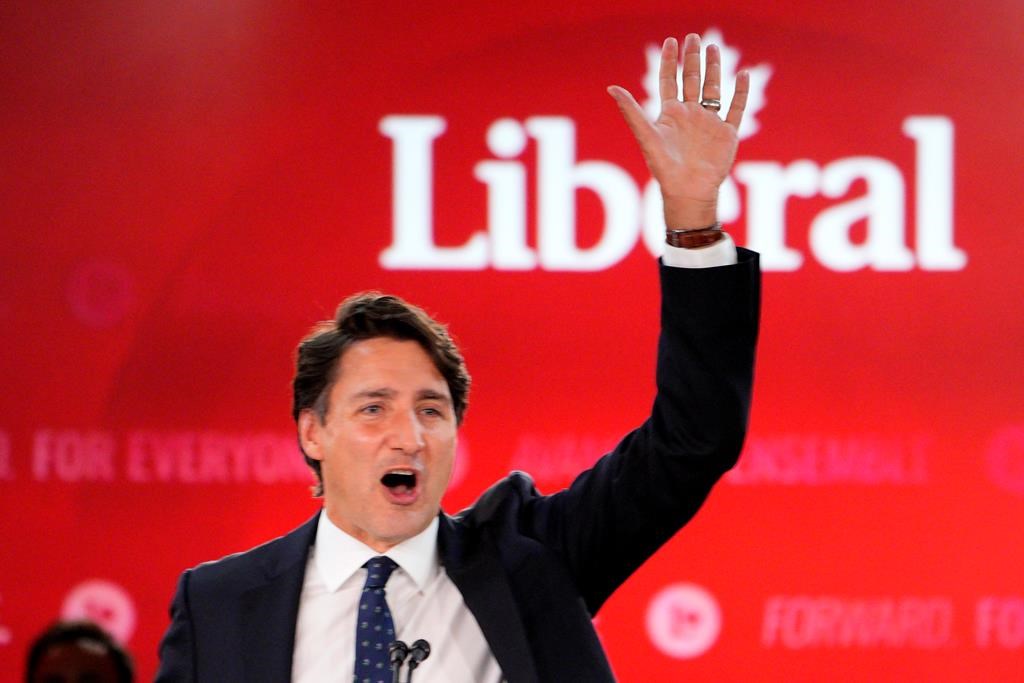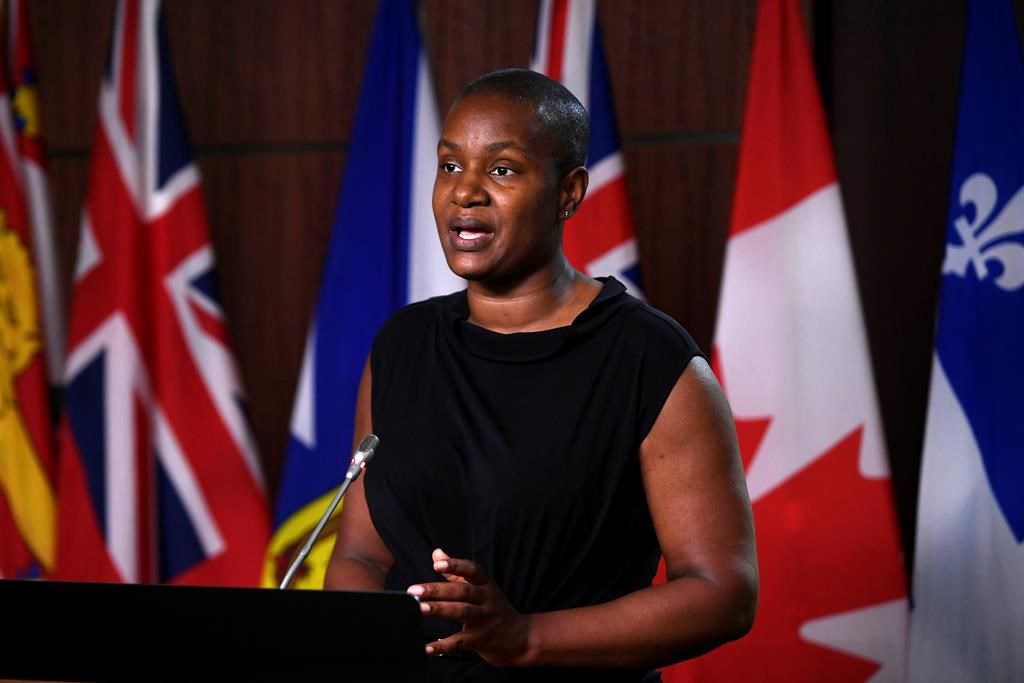This content is restricted to subscribers

The views, opinions and positions expressed by columnists and contributors are the author’s alone. They do not inherently or expressly reflect the views, opinions and/or positions of our publication.

This content is restricted to subscribers
The views, opinions and positions expressed by columnists and contributors are the author’s alone. They do not inherently or expressly reflect the views, opinions and/or positions of our publication.

Does political branding work? Is it real?
Some, like this writer, say yes. Some say it’s a lot of Madison Avenue gobbledegook and mumbo-jumbo: Pepsi versus Coke, whatever.
Trust me: political branding works, and it’s very, very real. Don’t believe it? Then take a look at what happened in three ridings on election night, right across the country: Vancouver-Granville, Spadina-Fort York, and Fredericton.
A summary:
In Vancouver-Granville, the Liberal candidate – Taleeb Noormohamed – was caught flipping houses and making millions, a practice the Liberal Party platform promised to outlaw. Noormohamed skipped all-candidates meetings, refused to get up and knock on doors, and was a disaster in media encounters. He won anyway.
In Spadina-Fort York, the Liberal candidate – Kevin Vuong – withheld the fact that he had been charged for sexual assault (a trial didn’t take place because the alleged victim could not participate in the trial). When the sexual assault charge was made public, it was too late to remove Vuong’s name from the ballot. The Liberal Party initially defended Vuong, but – when outrage grew – dropped him as a candidate. He won anyway.
In Fredericton, the Liberal candidate – Jenica Atwin – was elected in 2019 under the Green Party banner. In 2020, Atwin defamed the Jewish state, accusing it of the racist policy of “apartheid” – despite the fact that Israel has Palestinians in its government, military and judiciary. She was thereafter welcomed into Justin Trudeau’s caucus and told the media she was “not alone” in her anti-Israel position there, reaffirming that she “certainly stands” by her smears about the Jewish state. She won anyway.
Noormohamed, Vuong and Atwin represent the very worst in politics. They are unfit to run for dog-catcher, let alone a seat in our highest legislature. Allegations of anti-Semitism, sexual assault, illicit personal enrichment: these people do not in any way belong in Parliament. But to Parliament they were elected.
Some will lay the blame with the media – but it was the news media which made the allegations against Noormohamed, Vuong and Atwain public, and rained ignominy down on them. Others will accuse clueless urban voters of complicity – but Fredericton is comparatively very tiny, and Atwin was elected there by only a few thousand votes.
So why? Why, why, why were these creeps elected, when we all knew how disreputable they were?
Because branding. Because all three shared one thing: the Liberal Party brand.
Like it or not, the Liberal Party is the most successful political vehicle in Western democracy. It has ruled Canada for most of its history.
The Liberal brand means different things to different people – managerial competence, national unity, accommodation of newcomers. But its brand is stronger than the Conservative brand, or the New Democrat brand.
In one of my books, Fight The Right, I argue that big political choices are emotional, not rational. They are made in a voter’s heart, not his or her mind. Political branding works because it is all about emotion – it’s essentially repeating a word or phrase or logo, over and over, until it lodges in a voter’s gut.
For those of you who are appalled by Justin Trudeau, like me, rest assured, you are not alone: two-thirds of Canadians feel as we do. The 2021 federal election was “won” despite Justin Trudeau, not because of him.
Trudeau clung to power – with Noormohamed, Vuong and Atwin right behind him – because most people vote for a brand, not a person. They all ran under the Liberal brand, which is the strongest political brand in our history.
Can voters be persuaded to abandon the Liberal brand? Sure. Coke drinkers regularly become Pepsi drinkers (I did).
It’s a long, laborious, labyrinthine process, however. It ain’t easy.
But if you want to defeat Trudeau, Noormohamed, Vuong and Atwin next time, it’s the only way.
Kinsella was Jean Chretien’s Special Assistant and Vice-President of a Vancouver ad agency.
The views, opinions and positions expressed by columnists and contributors are the author’s alone. They do not inherently or expressly reflect the views, opinions and/or positions of our publication.

This content is restricted to subscribers
The views, opinions and positions expressed by columnists and contributors are the author’s alone. They do not inherently or expressly reflect the views, opinions and/or positions of our publication.

There’s a real possibility that Annamie Paul could be booted out as Green Party leader in a month’s time. If so, it could potentially spell the end of this minor party in many voters’ eyes.
What’s going on? A strange witches’ brew of a rookie MP’s controversial statements, competing political factions in the Greens – and plenty of inside baseball.
Paul, a lawyer and unsuccessful Green candidate in a 2019 federal by-election in Toronto Centre, won the leadership on Oct. 3, 2020 after beating fellow lawyer Dimitri Lascaris on the eighth ballot. She replaced longtime Green Party leader Elizabeth May, who had stepped down on Nov. 4, 2019 – although she remained an MP for Saanich-Gulf Islands in B.C.
As the first black and Jewish woman to lead a major Canadian political party – she converted in 2000 after marrying her husband – Paul’s win was widely viewed through a historical lens. Her second bid to win Toronto Centre on Oct. 26, 2020 proved unsuccessful, but coming within 2,331 votes (or 9.25 percent) of beating former broadcast journalist Marci Ien in a strong Liberal riding bode well for her future.
Yet even during this upbeat period, there were early signs of looming political turmoil.
The Greens fell into the trap of discussing the BDS (Boycott, Divestment and Sanctions) movement during the leadership race. Lascaris supported this concept and wanted to enshrine it into party policy with respect to Israel and the Middle East. Paul and May were opposed to the idea and pushed back. This division furthered the existing cracks that already existed with respect to the Greens and anti-semitism. Paul became a primary target, which forced party spin doctors to engage in damage control.
There was also the question whether Paul was really in charge of the Green Party. She had been elected leader in a democratic fashion, but May had held that role for 13 years. Her influence was enormous, and her decision not to leave federal politics raised eyebrows. While some ex-political leaders have stayed in Ottawa and didn’t stir the pot – Joe Clark, John Diefenbaker and Ed Broadbent immediately come to mind – assuming May would follow suit seemed far-fetched to most political observers.
It’s fascinating, then, as both contentious issues awoke from a not-so-deep slumber to give the Green Party headaches once more.
This came courtesy of Jenica Atwin. She was one of three Green MPs elected in the 2019 federal election – and the first one elected outside of B.C. (She represents the Fredericton riding in New Brunswick.)
Atwin recently made headlines with some controversial comments about the Middle East. She called Paul’s call for de-escalation of the Israel-Palestine conflict as “totally inadequate” in a May 11 tweet. “Forced Evictions must end!,” she wrote, “I stand with Palestine and condemn the unthinkable air strikes in Gaza. End Apartheid!” Her statement had been preceded (and possibly motivated) by a comment from Green MP Paul Manly’s depiction of the potential removal of Palestinians from Sheikh Jarrah in East Jerusalem as “ethnic cleansing.”
Paul didn’t say anything about those statements. One of her senior advisers did. Noah Zatzman, who is reportedly on a six-month contract in her office, didn’t name the two MPs but wrote in a May 14 Facebook post, “We will work to defeat you and bring in progressive climate champions who are antifa and pro LGBT and pro indigenous sovereignty and Zionists!!!!!”
Atwin briefly became a political albatross on Paul’s neck. She ultimately crossed the floor on June 10 to the Liberals, claiming she was “at a crossroads” the past month and the whole matter had “been, in a word, distracting.” The Israel-Palestine conflict may have caused this splinter, but there’s some dispute as to when Atwin actually started negotiations with the Liberals. While Intergovernmental Affairs Minister Dominic LeBlanc focused more on her Native Canadian background and interest in aboriginal issues, neither he nor Prime Minister Justin Trudeau have said much about her statement. (She ultimately tweaked her position on Tuesday.)
Israel and the Middle East had caused another political eruption in Green Party circles. Two party executives also resigned during that time – including John Kidder, who just happens to be May’s husband.
May then entered the fray. “Losing Jenica is not something I am prepared to accept without a fight,” she told Globe and Mail on June 14. “She is a Green – and we want her back.”
Hold on. Atwin has already left. May’s comments seemed meaningless. An apology from Paul likely isn’t forthcoming. What was the point of this?
It was merely the opening act.
On Tuesday, the Greens triggered the process of a no-confidence vote in Paul’s leadership for July 15. She could be kicked out over this brouhaha, and the door could be open for May to become party leader once more. If Paul survives, she’ll be much weaker politically and could face an exodus of party members, supporters and, quite possibly, her two MPs, Manly and May.
The Greens are a small political outfit. This party has only elected three MPs, and its highest amount of popular support was 6.8 percent in 2008. Any hopes of a significant political breakthrough in the next federal election were pretty minuscule to begin with, and will be nearly non-existent now. Canadians aren’t going to vote for a minor party that can’t figure out its leadership situation, can’t avoid controversies and can’t establish a unified position on issues unrelated to the environment.
How do you spell Green Party? M-I-C-K-E-Y-M-O-U-S-E, of course.
Michael Taube, a long-time newspaper columnist and political commentator, was a speechwriter for former Canadian prime minister Stephen Harper.
The views, opinions and positions expressed by columnists and contributors are the author’s alone. They do not inherently or expressly reflect the views, opinions and/or positions of our publication.